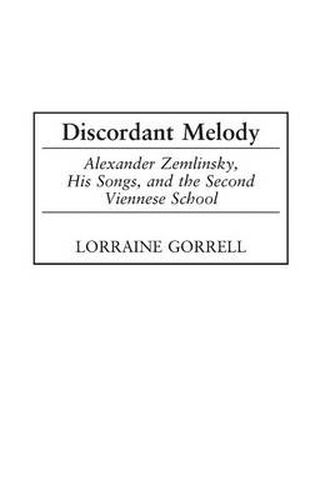Readings Newsletter
Become a Readings Member to make your shopping experience even easier.
Sign in or sign up for free!
You’re not far away from qualifying for FREE standard shipping within Australia
You’ve qualified for FREE standard shipping within Australia
The cart is loading…






Reveals the significance of the songs of rediscovered composer Alexander Zemlinsky and presents an analysis of them in a cultural, historical, and musicological context. Esteemed by many of his most distinguished contemporaries, including Igor Stravinsky, as one of the greatest composers of his age, Alexander Zemlinsky (1871-1942) was a protege of Brahms and Mahler. Despite this, he was overshadowed by the composers of the second Viennese school, and for many years after his death was remembered merely as the brother-in-law of Arnold Schoenberg. But with centenary celebrations of Zemlinsky’s birth, scholars began a careful examination of his works and realized they had discovered a forgotten master. Zemlinsky’s wonderful melodic gift was manifested in operas, choral works, chamber music, and symphonic pieces, but was realized most fully in his more than one hundred songs. In this important new study–the first such work in English–Lorraine Gorrell focuses on these songs, revealing the ways in which they represented a bridge between the 19th-century romantic lied and the 20th-century avant-garde. Of interest to scholars studying both the German art song and the development of the second Viennese school, Gorrell’s work uses Zemlinsky’s songs as a lens through which to examine an important, highly influential musical figure.
$9.00 standard shipping within Australia
FREE standard shipping within Australia for orders over $100.00
Express & International shipping calculated at checkout
Reveals the significance of the songs of rediscovered composer Alexander Zemlinsky and presents an analysis of them in a cultural, historical, and musicological context. Esteemed by many of his most distinguished contemporaries, including Igor Stravinsky, as one of the greatest composers of his age, Alexander Zemlinsky (1871-1942) was a protege of Brahms and Mahler. Despite this, he was overshadowed by the composers of the second Viennese school, and for many years after his death was remembered merely as the brother-in-law of Arnold Schoenberg. But with centenary celebrations of Zemlinsky’s birth, scholars began a careful examination of his works and realized they had discovered a forgotten master. Zemlinsky’s wonderful melodic gift was manifested in operas, choral works, chamber music, and symphonic pieces, but was realized most fully in his more than one hundred songs. In this important new study–the first such work in English–Lorraine Gorrell focuses on these songs, revealing the ways in which they represented a bridge between the 19th-century romantic lied and the 20th-century avant-garde. Of interest to scholars studying both the German art song and the development of the second Viennese school, Gorrell’s work uses Zemlinsky’s songs as a lens through which to examine an important, highly influential musical figure.